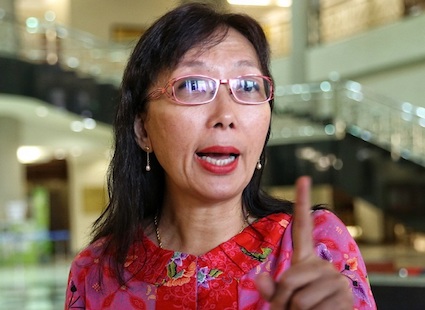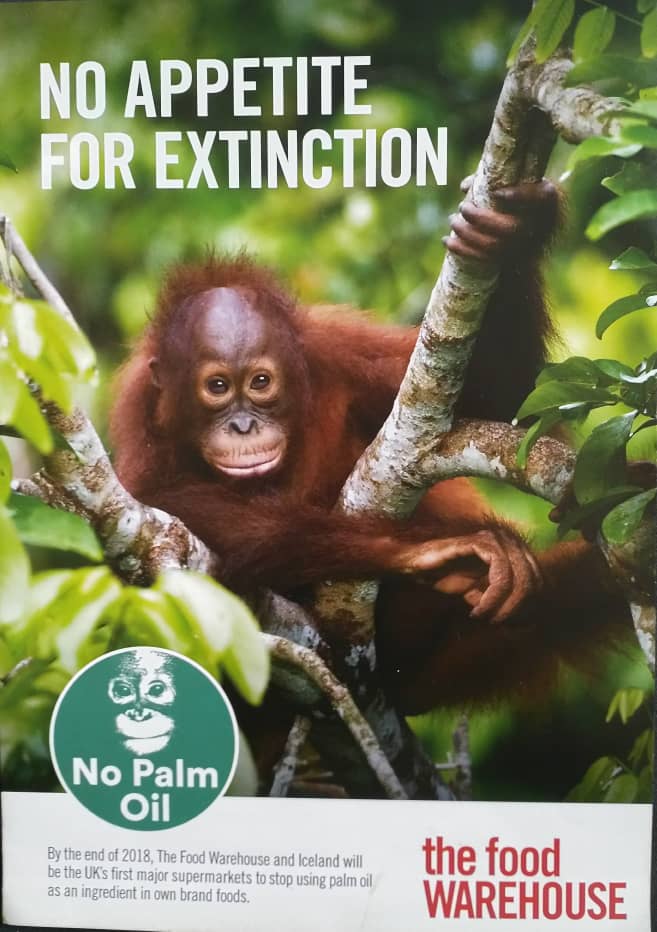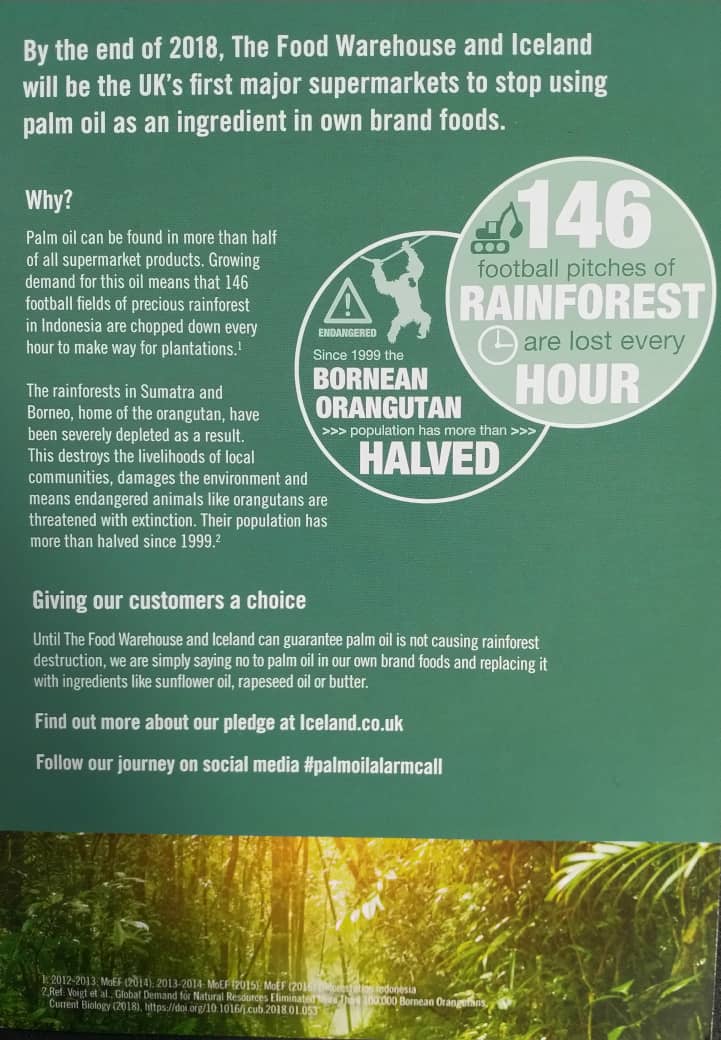Teresa Kok condemns Iceland’s anti-palm oil campaign

(FMT) – The primary industries ministry (MPI) has labelled a British supermarket chain’s anti-palm oil video campaign as unfair, calling it biased political propaganda.
Which is why the ministry, in a statement, said it welcomed the decision by Clearcast, the United Kingdom’s body for approving advertising material for broadcast, to ban the Iceland ad for its Christmas shopping campaign.
The commercial, dubbed “Rang-tan”, calls for consumers to be aware of the environmental impact of the world’s most widely used vegetable oil.
MPI Minister Teresa Kok said the ministry has reviewed the content of the video and the “Good Morning Britain” interview with the Iceland Managing Director and found the campaign to not be political propaganda but one that shows that greed had taken over the company’s management.
“We welcome UK Clearcast’s decision and hope it will not reverse it, despite pressure from certain quarters.
“This is because the anti-palm oil campaign is unfair and misleading with disputable and unproven claims.”
Kok also lambasted anti-palm oil campaigns, including by non-governmental organisations, aimed at crippling the palm oil industry by using biased and unfounded information, which ultimately leads to such unfair labelling.
“It smacks of double-standards, as well as a blatant attempt, to safeguard their products at the expense of the palm oil industry in this region.
“We will not be cowed or stand by idly when advertisements such as the nasty one created by Iceland are allowed to wrongly influence the minds of the people in markets crucial to us,” she said.
She added that the facts and scientifically researched data are indisputable – oil palm is at least four to six times more productive per hectare than other edible oils such as rapeseed cultivated in Europe.
Kok also said Putrajaya has emphasised protecting the environment and safeguarding the livelihood of workers and will not compromise on these matters.
She pointed out that Malaysian palm oil plantations are developed on agriculture land, and not permanent forest reserve.
“More than 50% of the land area in Malaysia is forest cover and the country has pledged to keep it that way.
“Can most European countries claim the same? Setting aside 50% of land area as forest cover is a significant contribution from Malaysia, a small developing country,” she said.
Kok also said Malaysia is a responsible member of the international community in fulfilling the collective duty of addressing climate change and protecting the world’s biodiversity for the common future of humankind.
The country efforts at protecting its wildlife have also been internationally recognised, such as the Sepilok Rehabilitation Centre in Sabah and Semenggoh Wildlife Centre in Sarawak for Orangutans.
In addition, the Malaysian palm oil industry stakeholders like Sime Darby and the Malaysian Palm Oil Council are also involved in the conservation efforts of wildlife.
Malaysia is also increasingly subscribing to production and supply of certified sustainable palm oil (CSPO) and has voluntarily adopted internationally accredited sustainability standards.
“We have also set a goal to achieve complete CSPO for exports by end-2019 through the Malaysian Sustainable Palm Oil certification. Therefore, the long-standing criticisms over the sustainability of our palm oil are disproportionate and unfair.”
She also condemned supermarkets and brands, like Iceland, that admonish palm oil in the Western world.
“They should realise their hypocrisy when they go against their own belief in free and fair trade by instigating consumers to boycott palm oil.”
According to Kok, it was shameful of Iceland to resort to this cheap, underhanded tactic and she was disappointed with such behaviour by such an established company.
“It makes us wonder whose interest Iceland is protecting, is it the orangutan that are already protected by law in Malaysia?
“Do they not care for the 650,000 Malaysian smallholders and the foreign workers from other Asian countries who make an honest living from the palm oil industry?”



